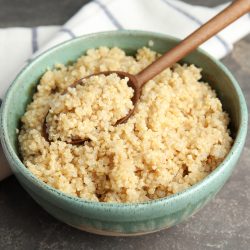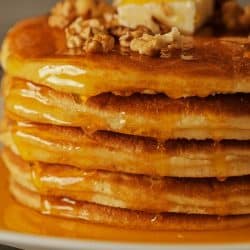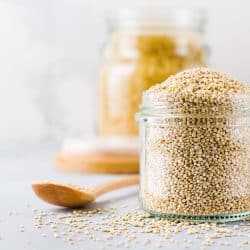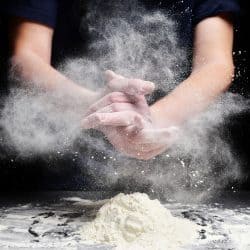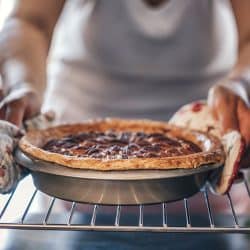If you're beginning to bake a cake and discover you don't have a key ingredient, cake flour, it can be very disheartening. Luckily, there are a few different alternatives that can be used. It's essential to be careful when switching out ingredients while baking. One wrong move and you can get a flat, dry, or odd-tasting cake. So, what do you do when you need cake flour and don't have it? We've done the research and found cake flour alternatives for your baking needs.
Substitutes for cake flour:
- Almond flour
- Quinoa flour
- Coconut flour
- Pastry flour
- All-purpose flour
- Self-Rising flour
When using a cake flour alternative, it's important to consider how the substitute will affect the final baked cake. Keep reading to discover why cake flour is used in cakes and what makes these alternatives best for your cake.
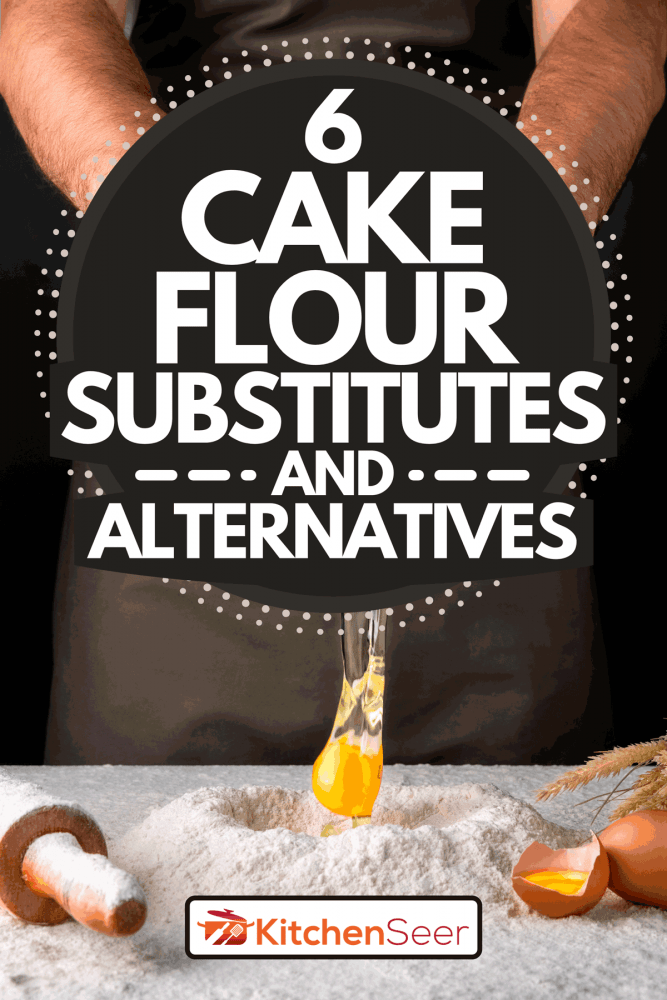
Before You Substitute!
Out of all the flour, cake flour has the lowest protein count. The frequently used all-purpose flour has between 9 and 12 percent protein. In comparison, cake flour only has between 8 and 10 percent protein. This is important because the low protein count makes for soft, smooth, and moist cakes.
Your flour substitute should help give structure to your cake as well as give it a softer texture. Be careful when using non-grain-based flour. Those can dry out a cake if not enough liquid is used. Also, keep an eye on protein content for wheat-based flour. Too high, and you've got a bread texture. With that in mind, here are some of the best alternatives to using cake flour.
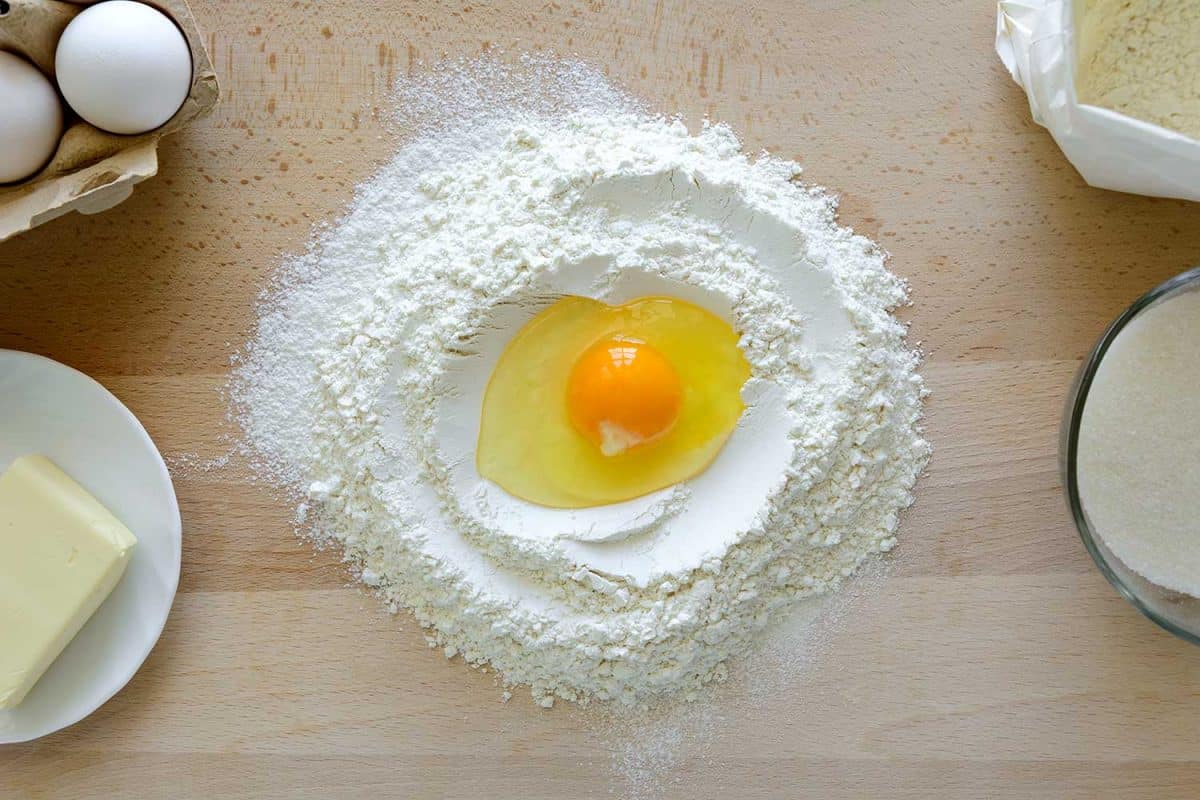
1. Almond Flour
Almond flour is an excellent gluten-free option for baked goods. Its high-fat content helps keep the cake soft and moist. It can also add a slightly sweet and nutty taste to the final product. When substituting almond flour for cake flour, it's recommended to use a quarter less flour than what the recipe calls for.
This flour can either be bought or made at home. If you have blanched (peeled) almonds at home, you can blend them in a food processor to create your own almond flour. Anytime you make or buy flour, it's important to store it properly. Check out What Is The Best Container To Store Flour? [7 Suggestions] for advice.
Check out Blue Diamond brand almond flour on Amazon.
2. Quinoa Flour
Quinoa flour is another great gluten-free alternative to most flours. This type of flour provides cake with a great structure and rise. It can also add a slightly nutty flavor. This substitution works best in combination with either potato flour or rice flour. However, it isn't necessary. Quinoa flour can typically be substituted for 1:1 for cake flour.
This flour can also be made at home. After making quinoa flour at home, you can toast it in the oven to get a texture that's more similar to all-purpose flour.
Check out Bob's Red Mill quinoa flour on Amazon.
3. Coconut Flour
Coconut flour is often used in baking. It's great for cakes as well as for bread and muffins. This flour can add a coconut flavor to your cake and provides excellent structure. While not necessary, some find the flavor profile for coconut flour is improved when mixed with almond flour.
One major difficulty for coconut flour is its absorbency. When substituting for coconut flour, use a quarter less than what your recipe calls for. Another good rule of thumb is to use an additional liquid. Also, for every quarter cup of coconut flour you use, add an additional egg to your egg. The extra eggs will help bring in more moisture to your cake.
Check out Anthony's premium coconut flour on Amazon.
4. Pastry Flour
Pastry flour is a nice middle ground between cake flour and all-purpose flour. This type of flour usually has a protein content between 9 and 10 percent. While typically used for cookies, pie crusts, or pastries, this is a good option for cakes. Cakes will still be moist and soft when using pastry flour. Typically you can use the same amount of pastry flour that you would cake flour.
Check out Bob's Red Mill fine pastry flour on Amazon.
5. All-purpose flour
When not looking for a gluten-free option, all-purpose flour is the most recommended substitute for cake flour. All-purpose flour and cornstarch are the only things you need to make your own cake flour at home. When using the all-purpose and cornstarch combination, you will get a soft crumble to your cake.
Not sure what brand of flour to buy? Check out Does Flour Brand Matter For Baking? for tips.
Check out Arrowhead Mills' organic all-purpose flour on Amazon.
6. Self-Rising flour
Self-rising flour is a good choice because of how even cakes rise when they use self-rising flour. While it does give great structure, taste, and texture, this flour is harder to work with. To get a cake that looks and tastes correctly, be very careful with the amount of baking powder you are putting in. Many times it can be left out entirely.
Check out a typically southern regional self-rising flour on Amazon.
What can I use if I don't have cake flour?
There are several different gluten-free as well as wheat-based flour options that are excellent substitutions for cake flour. Many people recommend creating your own cake flour. Making your own cake flour only requires two ingredients, and it will create a cake that's the most similar to store-bought cake flour. Remember to keep an eye on protein content for wheat-based flour. Since bread flour has the highest protein count, it should be avoided when looking for a cake flour substitute.
Of course, wheat-based flour isn't your only option. Gluten-free flour is widely available and can work well in baking cakes. Unfortunately, gluten-free baking can sometimes be challenging. The gluten protein is what gives baked goods their structure. So, when substituting for cake flour, some minor adjustments generally need to be made. It's common to add xanthan gum to introduce elasticity properties to gluten-free flour. With practice, gluten-free flour gets easier to work with, and they can make delicious baked products.
Can you make your own cake flour?
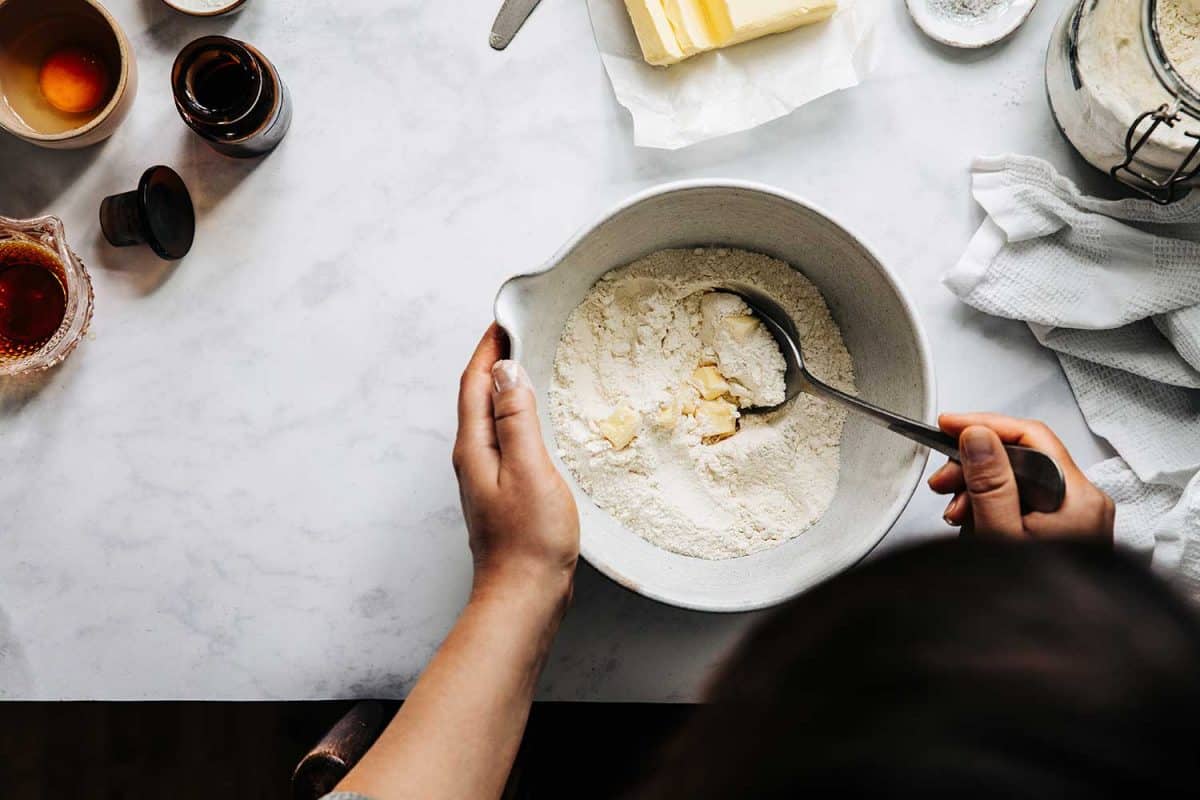
Making your own cake flour is a very simple process. The only things you will need are all-purpose flour and cornstarch. The cornstarch acts to lower the protein content of the flour, which helps create a tender and crumbly cake.
How do I substitute all-purpose flour for cake flour?
All-purpose flour is the go-to method when you need a cake flour substitute. To use this as an alternative and to create your own cake flour, first measure out one cup of all-purpose flour. Next, remove two tablespoons of flour and replace it with two tablespoons of cornstarch. Finally, sift the cornstarch and flour mixture two to three times.
Can I use plain flour for cakes?
Plain flour and all-purpose flour can be used interchangeably. When substituting plain flour for cake flour, follow the steps to make a cake flour substitute for the best results. Sometimes pastry flour is referred to as plain four. This is not correct. However, if you're substituting plain flour for cake flour, there's no need to add any cornstarch.
How do I substitute self-rising flour for cake flour?
Self-rising flour is a combination of regular flour, baking powder, and salt. Baking powder is a leavening agent which helps a dough expand. When substituting self-rising flour for cake flour, you'll have to adjust the amount of baking soda or baking powder that your recipe calls for. If the recipe asks for between a half and a whole teaspoon of baking powder, omit it entirely. The baking powder that's in the self-rising flour will be enough.
Is self-rising flour better for cakes?
While self-rising flour does create a cake with a more consistent, better-looking rise, it isn't necessarily better for cakes. Self-rising flour is a good alternative, but it may be easier for a more experienced baker to use it. Keeping an eye on how much baking powder your recipe needs will be crucial. Too much baking powder or soda will greatly alter your final result. Sometimes cakes can collapse, become bitter, taste soapy, or become too crumbly.
In Closing
There are many great substitutes or alternatives that can be used instead of cake flour. All-purpose flour and cornstarch are the most common substitutes and are used to make do-it-yourself cake flour. Non-wheat-based flours are a little more difficult to work with, but they can add slightly different flavor profiles while also being slightly more healthy. Whatever cake flour alternative you use, make sure you account for any differences that flour brings.







![Quinoa seeds with basil leaves. How To Use Quinoa Flour [Inc. 10 Awesome Recipes]](https://kitchenseer.com/wp-content/uploads/2021/05/Quinoa-seeds-with-basil-leaves.-How-To-Use-Quinoa-Flour-Inc.-10-Awesome-Recipes-250x250.png)
